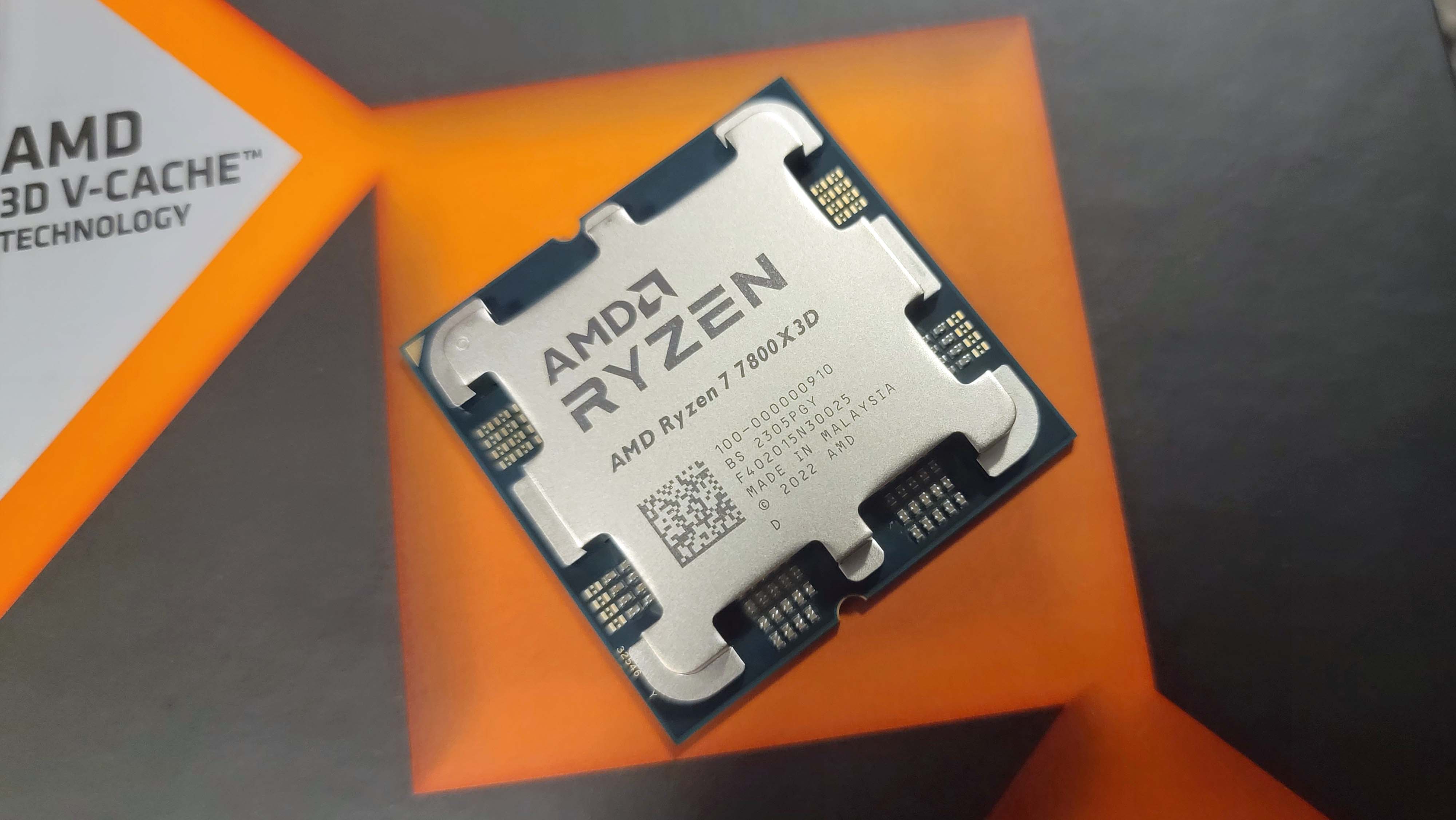Why you can trust Tom's Hardware
The $449 Ryzen 7 7800X3D delivers incredible gaming performance that easily beats Intel's flagship Core i9-13900K while also dethroning AMD's own Ryzen 9 7950X3D as the fastest gaming chip on the market. However, the Ryzen 7 7800X3D is a specialized chip optimized specifically for gaming, so it trails Intel’s competing Core processors in productivity applications.
AMD's pricey Ryzen 9 7950X3D and its sibling the 7900X3D arrived to critical acclaim, but the company held back the much less expensive Ryzen 7 7800X3D until April 6. From a business perspective, that makes a lot of sense — the 7800X3D offers slightly more gaming performance for $250 less than the flagship, which doesn’t leave much reason to buy the flagship if you’re only interested in gaming.
Below, we have the geometric mean of our gaming test suite at 1080p and 1440p and a cumulative measure of performance in single- and multi-threaded applications. We conducted our gaming tests with an Nvidia RTX 4090, so performance deltas will shrink with lesser cards and higher resolution and fidelity settings.
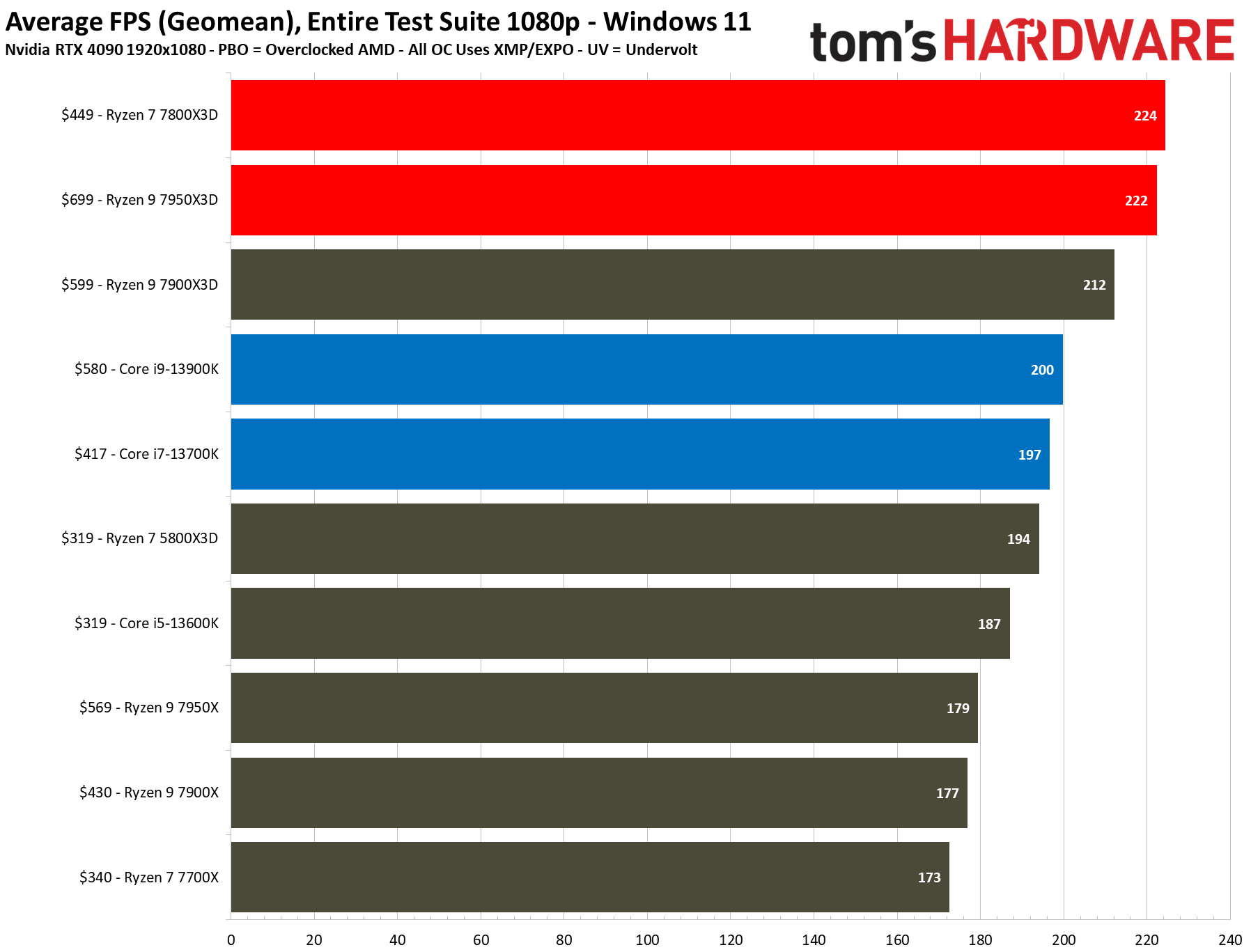
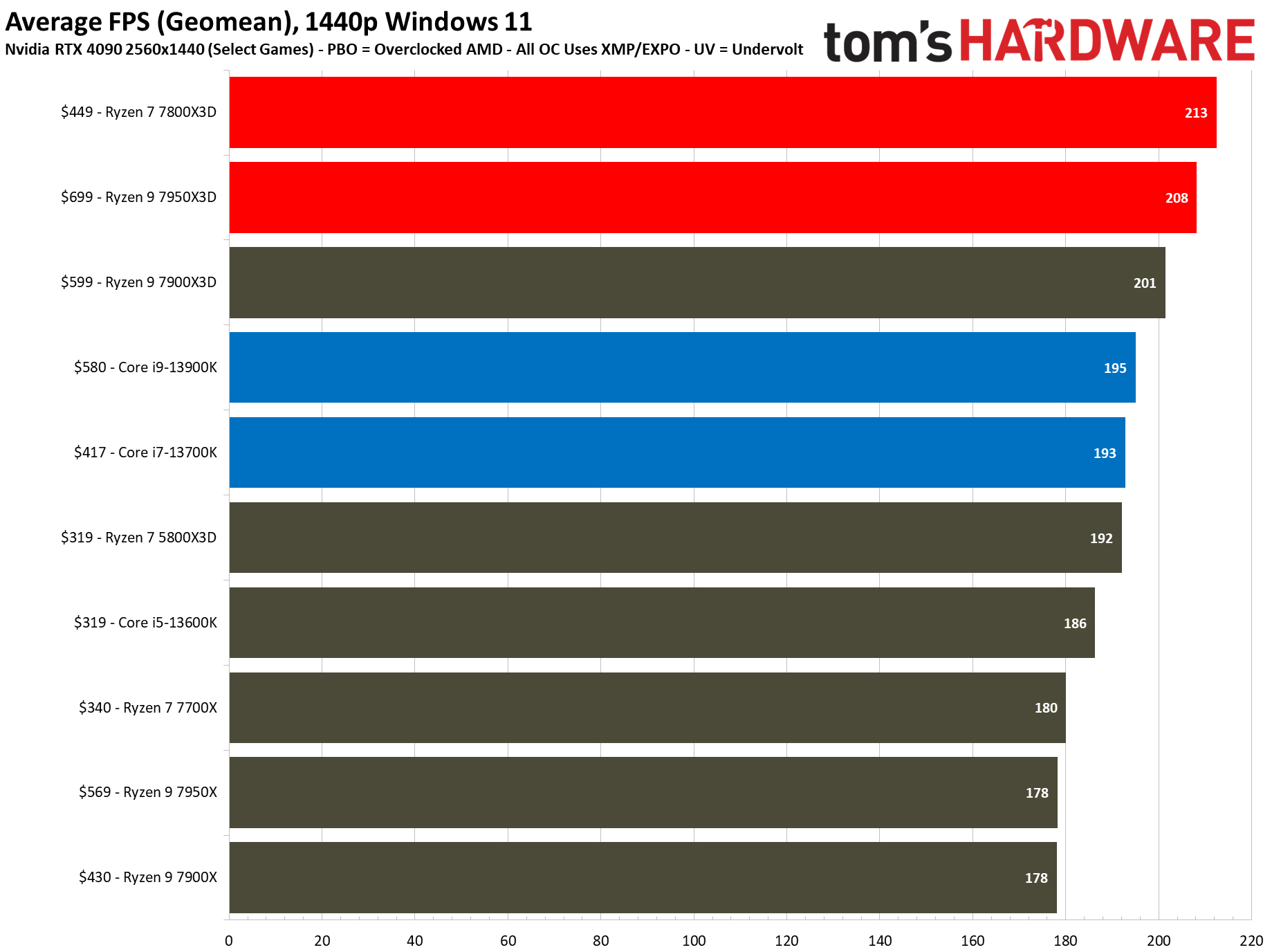
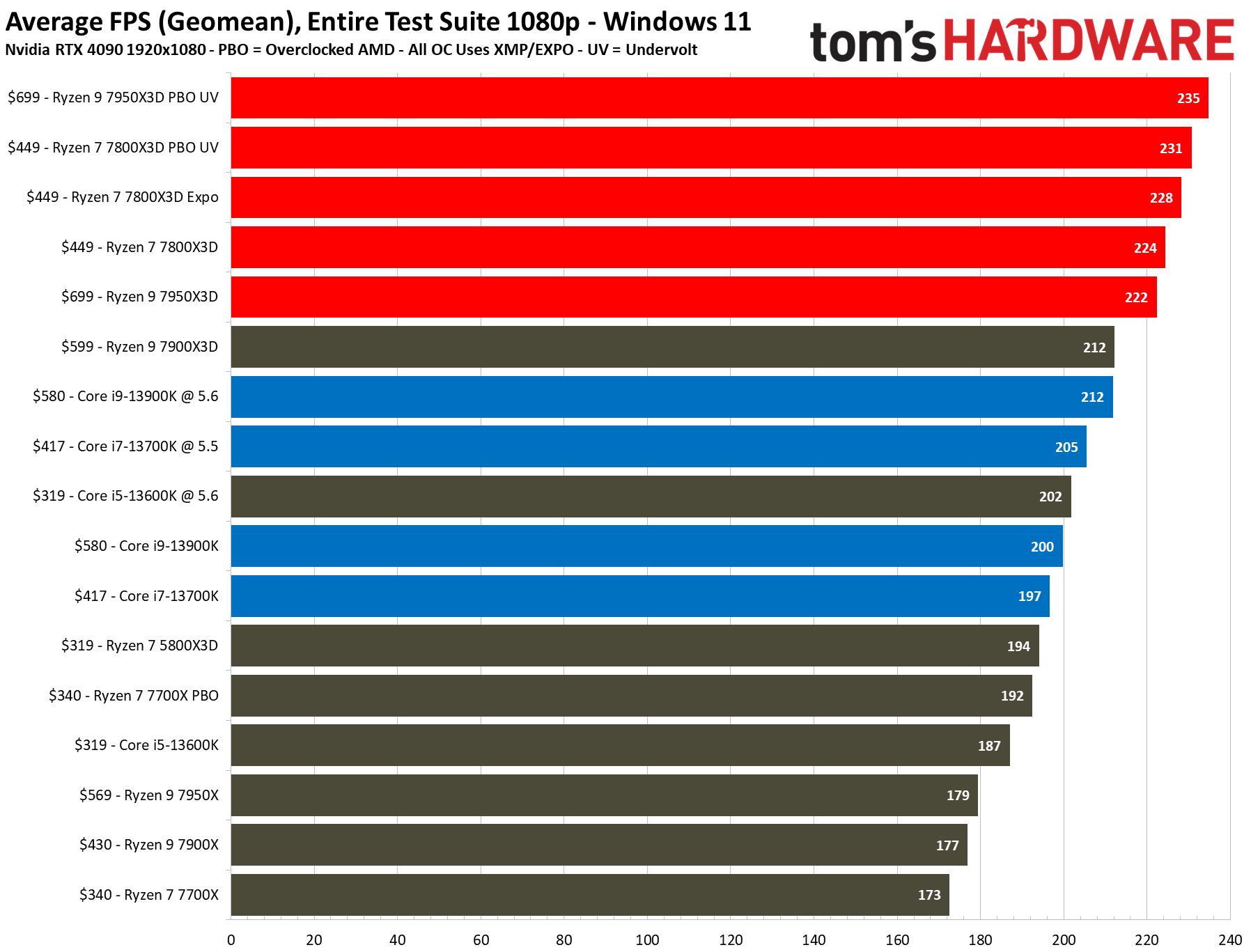
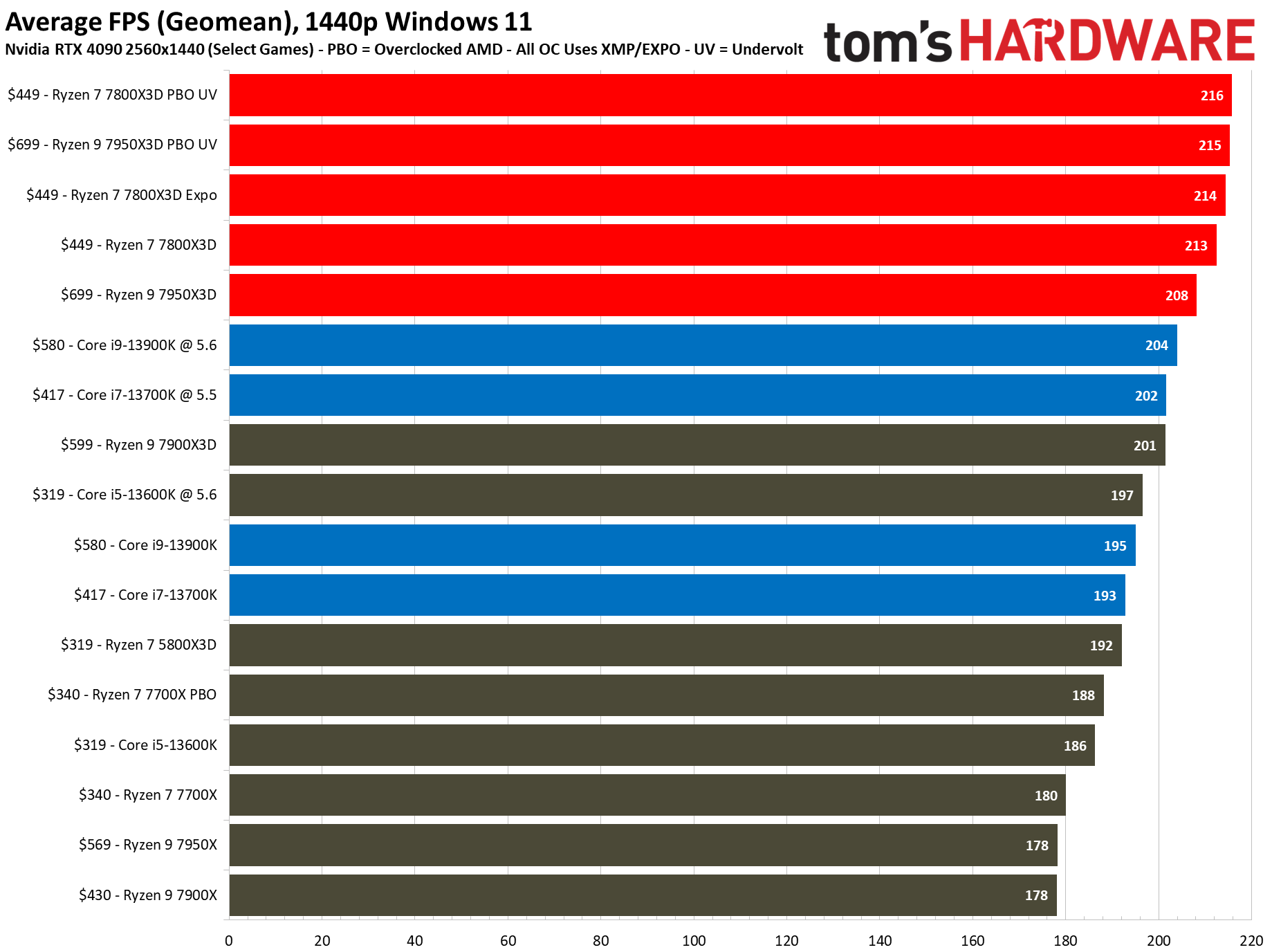
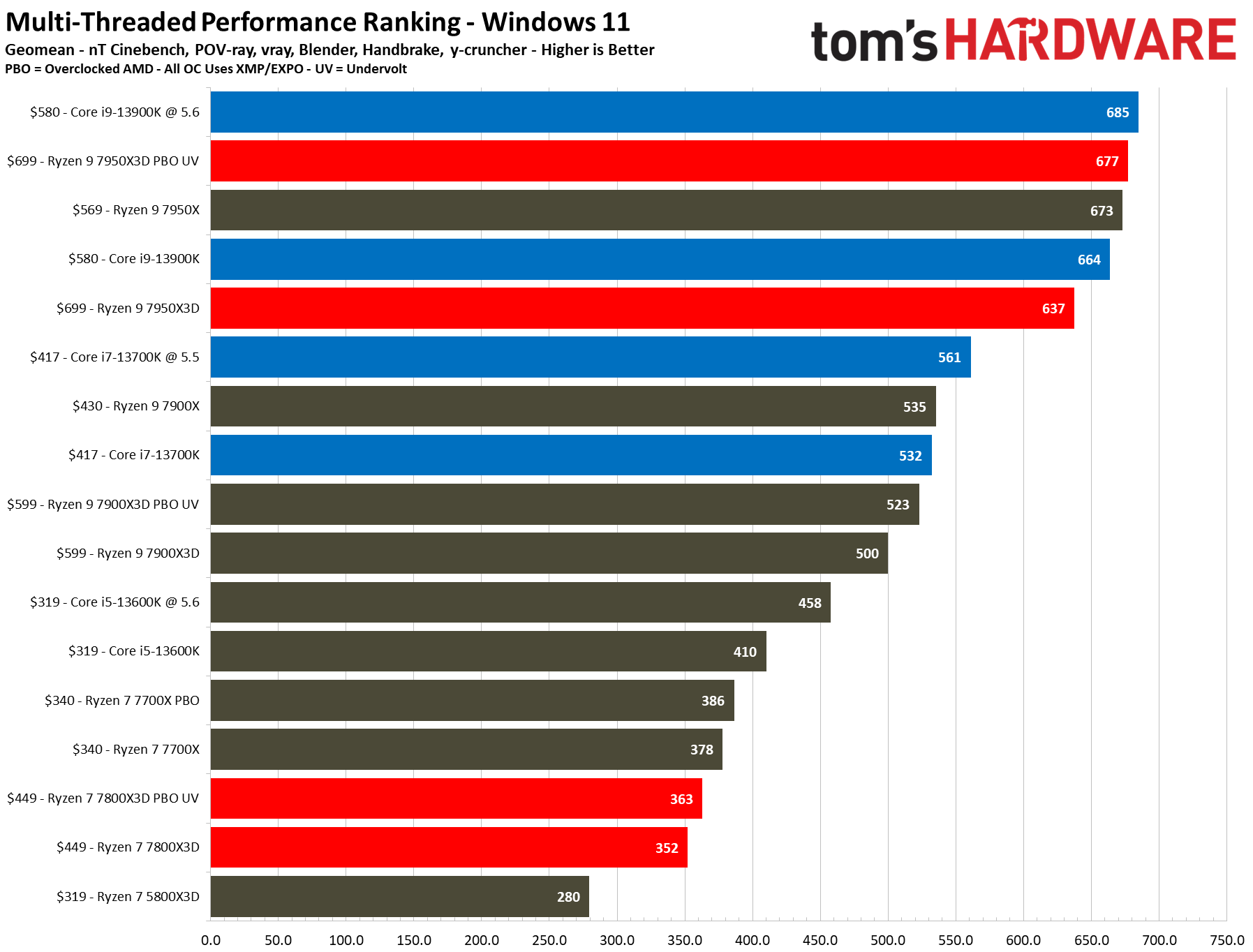
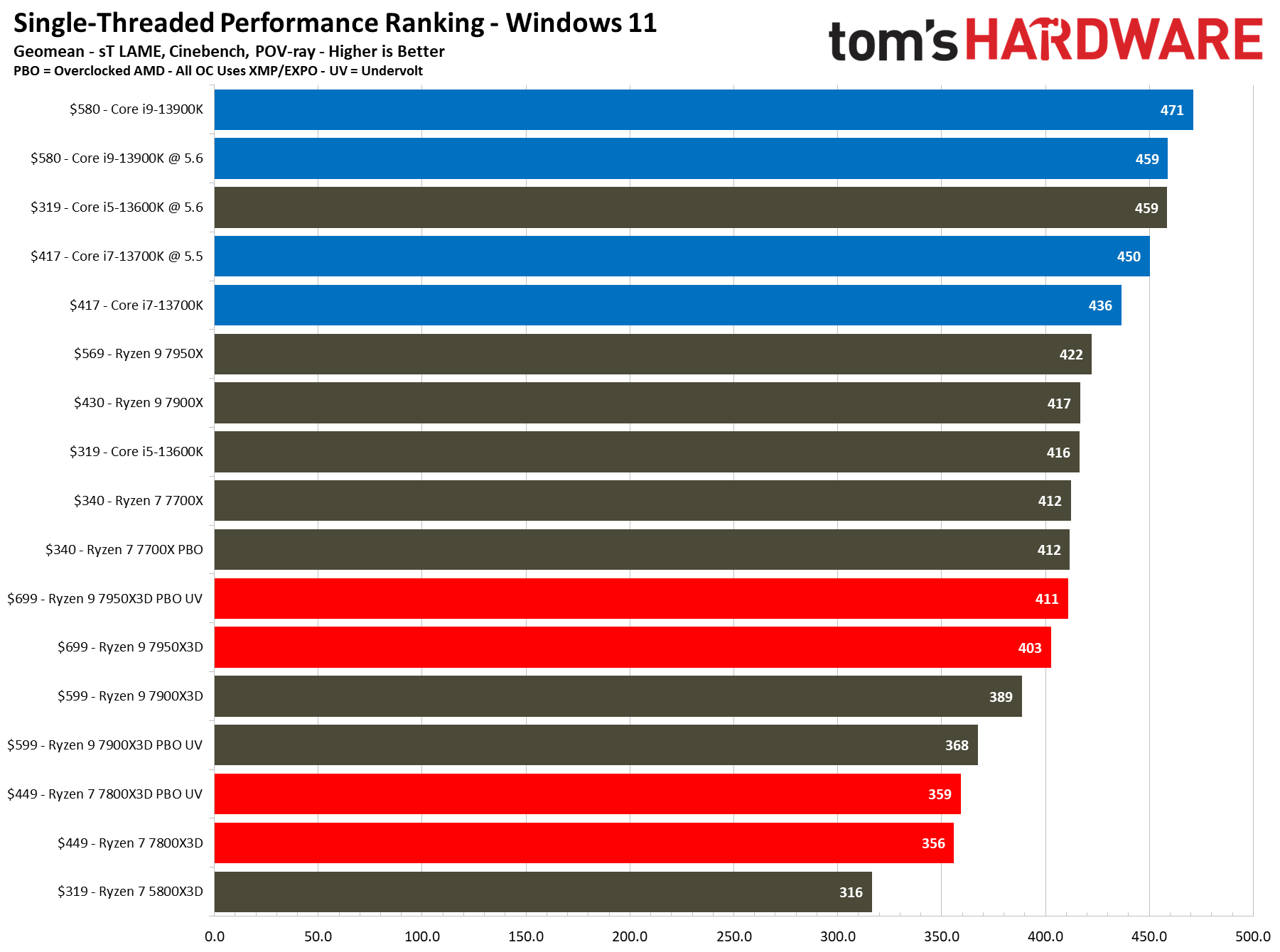
The above slides are cumulative measurements and the 3D V-Cache tech doesn’t accelerate all titles equally — you should check our individual game benchmarks on the preceding pages to make an informed decision based on your workload.
In 1080p gaming, the $449 Ryzen 7 78000X3D is 12% faster than the $580 Core i9-13900K and 14% faster than the Core i7-13700K, making it a superior chip for gaming-focused rigs. There currently isn't an Intel processor that can compete with AMD's X3D lineup in gaming, a critical technological deficiency that Team Blue will need to rectify. The Ryzen 7 7800X3D is also faster than AMD's flagship $699 Ryzen 9 7950X3D, but the margins between the chips fall into the imperceptible range. In either case, the Ryzen 9 7950X3D now only makes sense if you're focused on productivity applications.
The Ryzen 7 7800X3D suffers from much lower performance than the standard Ryzen 7000 models in productivity applications, so you'll need to be aware of the tradeoffs. If you're looking for strong gaming performance paired with the ability to cut through heavier workloads, the Intel Core i7-13700K is a much more amenable all-rounder at $417. For instance, the 13700K is 22% faster in single-threaded and 51% faster in multi-threaded work than the 7800X3D, and you can even opt for the graphics-less $390 13700KF to save some extra cash. (You can also see a deeper look at these chips head-to-head in our Ryzen 7 7800X3D vs Core i7-13700K feature.)
If you're interested in chips that can handle heavier work but offer nearly the same gaming performance as the 7800X3D, you could step up to the $699, 16-core Ryzen 9 7950X3D or $599, 12-core Ryzen 9 7900X3D. These chips come with the multi-core heft to power through demanding productivity work while also blasting through the latest titles with the speed of 3D V-Cache. The 7950X3D has been tough to find at retail, though. (The 13900K is also an option for those with a heavier focus on productivity, we have a deeper look at it head-to-head in the Ryzen 7 7800X3D vs Core i9-13900K feature.)
Like the rest of AMD's X3D family, the Ryzen 7 7800X3D is incredibly power efficient, drawing far less power than competing Intel chips and exhibiting superb power efficiency that ranks among the best we’ve ever tested. That means you’ll ultimately benefit from a cooler, quieter system. The chip also drops into AM5 motherboards that support the latest connectivity tech, like PCIe 5.0 and DDR5, and AMD plans to support the platform until 2025+. In contrast, Intel’s current round of motherboards will only support one more generation of chips, so upgradeability remains an advantage for AMD.
Overclocking didn't yield huge jumps with our sample — we saw a roughly 3% increase across both gaming and productivity apps. That isn't an entirely bad thing, as you're basically getting all of the great gaming performance right out of the box. If you want solid performance with no fuss, just buy a nice DDR5-6000 Expo kit with tight timings and call it a day. Some motherboard vendors are working on specialized overclocking features that could net up to a 10% performance gain, but we'll have to see how that pans out in the real world before making any recommendations.
AMD's Ryzen 7 5800X3D, its first 3D V-Cache chip, arrived at the same $449 price point as the Ryzen 7 7800X3D, but it has now fallen to a mere $319, making it the go-to chip for value seekers. Given AMD's history of lower-than-MSRP pricing several months after launch, we could see the Ryzen 7 7800X3D eventually becoming another great chip for value seekers. Unfortunately, in the near term, the high-cost trappings of the AM5 ecosystem and DDR5 memory will limit the appeal of the 7800X3D if you're cobbling together a lower-cost build.
Get Tom's Hardware's best news and in-depth reviews, straight to your inbox.
For gaming speed addicts, though, the only cure is to buy the fastest chip on the market, and the Ryzen 7 7800X3D offers a comparatively lower-cost pathway to the very best that AMD's 3D V-Cache has to offer. If you're willing to accept the tradeoffs, the Ryzen 7 7800X3D is the fastest gaming chip money can buy, earning a spot on our list of the best CPUs for gaming.
- MORE: AMD Ryzen 7 7800X3D vs Intel Core i9-13900K vs Core i7-13700K
- MORE: Best CPU for gaming
- MORE: CPU Benchmark Hierarchy
- MORE: Intel vs AMD
- MORE: How to Overclock a CPU
Current page: 3D V-Cache's Ultimate Form
Prev Page AMD Ryzen 7 7800X3D Productivity Benchmarks
Paul Alcorn is the Editor-in-Chief for Tom's Hardware US. He also writes news and reviews on CPUs, storage, and enterprise hardware.
-
colossusrage Nothing surprising here. Waiting for Black Friday to pick one up either cheaper or with some kind of bundle at Microcenter.Reply -
atomicWAR Staring at my 7950X3D chip and smiles...I need more cores personally and I have zero problem shutting down a CCD to get max FPS when the need arises which will beat the 7800X3D due to 250mhz higher clocks. Plus if I know a game hates/could care less about the extra cache I can switch CCDs to use the higher clocks. Regardless though this sounds like a great chip. I need to build a rig for my nephew who is graduating high school this year, he might benefit from a 7800X3D if I am nice...otherwise hell just get a 7700X lol.Reply -
JamesJones44 No real surprise here. For gaming only the 7800x3d is the best choice. That's why I was a little surprised the came out with a 7900 and 7950 variant.Reply
On a side note. When you compare the cost of the 7800x3d + AM5, it's actually only slightly more expensive than upgrading from a 12900k to a 13900ks (700 vs 890 with decent components and 32 GB of DDR 5). If your upgrading from something older than 12th gen Intel or 3000 series AMD it's hard to call the pricing a con in that scenario. Upgrading from either of those in a gaming only environment the prices are pretty close in a 13900k vs 7800x3d when you add all the component prices together. -
TerryLaze The reviewer forgot to mention one big con:Reply
Might get fried the second you boot it up the first time...
(if you upgrade from a different CPU and the bios settings are not extremely strickt set for the x3d chip)
https://www.tomshardware.com/news/overclocking-bug-5800x3d -
healthy Pro-teen Reply
It doesn't burn the chip itself, but the bug does allow you to mess with the voltages, so you can fry it but only if U manually (intentionally) push the voltage to insane levels like Igor did.TerryLaze said:The reviewer forgot to mention one big con:
Might get fried the second you boot it up the first time...
(if you upgrade from a different CPU and the bios settings are not extremely strickt set for the x3d chip)
https://www.tomshardware.com/news/overclocking-bug-5800x3d -
TerryLaze Reply
As I said, if you forget that you had higher Vcore for your previous CPU you can fry it on the spot.healthy Pro-teen said:It doesn't burn the chip itself, but the bug does allow you to mess with the voltages, so you can fry it but only if U manually (intentionally) push the voltage to insane levels like Igor did. -
healthy Pro-teen I watched the hardware unboxed review where a currently $140 motherboard ($125 MSRP) was able to keep up with a 7950X. there are many options for motherboards under $200 to run this chip without any issues, platform pricing is much better than it was at launch.Reply -
King_V Reply
So, if someone who already bought an AM5 CPU, which could have been purchased, AT MOST, 6 months ago, and has over-volted it, and has decided to swap in a 7800X3D....TerryLaze said:As I said, if you forget that you had higher Vcore for your previous CPU you can fry it on the spot.
That seems like an absurdly niche case. And, for the tiny number of people who are swapping from one AM5 chip to this one, and over-volted, one would think they'd be knowledgeable enough not to be that careless.
This seems like you're really grasping at straws to find a "flaw"/complain about AMD. -
jeremyj_83 Reply
I can see those other variants as people who game when they aren't working but still need a boat load of cores for their work.JamesJones44 said:For gaming only the 7800x3d is the best choice. That's why I was a little surprised the came out with a 7900 and 7950 variant. -
jeremyj_83 I am actually quite surprised by how closely the AMD supplied benchmark results were to the results for the same games in the review.Reply
